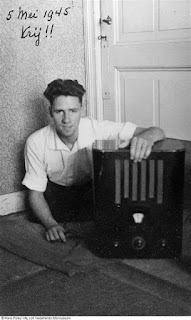Sybil Ludington: The Female Paul Revere
Artwork by Savannah Jane McCrary
On a stormy April night, the inhabitants of the Fredericksburg countryside were awakened by loud battering on their doors, and a young female voice crying out, “Call to arms! The militia is needed! Call to arms!”
Responding to the summons, the men of the local militia stumbled out of their beds, wondering why it was The Colonel’s teenage daughter they’d heard giving the call-to-arms.
The fight for American independence had been raging for two years. The British had ceased to look upon it as a hapless uprising, and were now engaged in a deadly power struggle for their valuable colonies. They had made a grand tour of the northeast, burning property, hanging outspoken civil leaders, and terrorizing the people in an effort to stifle rebellion.
Sybil Ludington, the eldest of Col. Henry and Mrs. Abigail Ludington’s twelve children, was sixteen years old.
Lovingly styled a “tomboy” by her family, she preferred riding and watching her father’s men drill to standard interests of women in colonial New York. She had a tenacious spirit and was a fervent patriot, likely inspired by the example of her father and his friends.
Col. Ludington, referred to anonymously by his men as “The Colonel,” was the commander of the 7th Duchess County Militia, as well as aide-de-camp to George Washington. Because of his reputation for harassing British troops and heavy involvement with Washington, he was wanted with a price of 300 guineas ($3,000) over his head. He shared a close relationship with his daughter, trusting not only her loyalty but judgment and dependability as well. Sybil and her younger sister Rebecca often acted as sentinels, standing guard with loaded muskets. They were also formal liaisons between The Colonel and his spies.
The reward for Colonel Ludington was tempting, and several efforts were made to capture him. Despite the secrecy and caution exercised by his family and his men, more than once he was nearly caught. One evening, the discovery was made that the Ludington house was surrounded by Tories. Resolved to protect their father and husband, Sybil and Mrs. Ludington leapt into action. After setting a light in every window, they instructed the children to present musket muzzles at the loopholes. The Tories, seeing what appeared to be a fully guarded house, changed their minds and turned back without capturing The Colonel.
On the night of April 26, 1777, a horse with frothy sides and an exhausted rider galloped into view of the Ludington home, bringing word that the British were ravaging and setting fire to the nearby town of Danbury. At the time, there was nobody within call that The Colonel could send to muster the furloughed troops. Nobody, except his daughter Sybil.
She eagerly volunteered, despite the thunderstorm raging outside. The route was thickly wooded and forty miles—twice the distance that Paul Revere had ridden on a clear, moonlit night.
With no other choice, Colonel Ludington gave her a stick and told her to bang it on the doors as she gave the call-to-arms. Wrapping a shawl over her head, Sybil mounted her horse and galloped off into the night. It was nine o’ clock, p.m.
The British, led by General William Tryon, had landed six warships and two-thousand forces in Westport Connecticut, eager to raid colonial supplies and capture patriot leaders. By morning the town was engulfed with flames, and the inhabitants ruined, raped, or wounded. One account described the attack on Danbury: “One of the most brutal and disgraceful performances of British arms in all the war.”
Meanwhile, Sybil had succeeded in spreading the word. She returned at daybreak, having mustered the four-hundred and twenty-one men, who rode without delay to revenge decimated Danbury. Meeting general and subsequent traitor Benedict Arnold at the Bay, they routed the retreating British and sent the survivors frantically swimming out to the retreating warships. What began as a prospective victory for the British ended in wholesale failure and embarrassment.
Alexander Hamilton wrote Col. Ludington: “I Congratulate you on the Danbury expedition. The stores destroyed have been Purchased at a pretty high Price to the Enemy.”
When she was twenty-three years old, Sybil married a lawyer named Edmund Ogden. She had one son, Henry Ogden. The tale of her ride faded into obscurity, and by the time she died in 1839, barely anyone remembered or even knew of her courage. It wasn’t until the 1880s when local historian Martha Lamb wrote and popularized her story, raising it from local history to a national legend.
Sybil died at the age of 77, and is buried beside her father in Patterson Cemetery, New York.
“For if you remain completely silent at this time, relief and deliverance will arise for the Jews from another place, but you and your father’s house will perish.Yet who knows whether you have come to the kingdom for such a time as this?”
Esther 4:14
References:
Martha Lamb, History of the City of New York: The century of national independence
Rick Green, Legends of Liberty
www.wallbuilders.com/women-heroes/
Carl Holiday, Woman’s Life In The Colonial Days
Lindsay Williams, Her Midnight Ride
Alexander Rose, Washington’s Spies
Bella DeLong is an amateur historian, novelist, and homeschool graduate. Her greatest passion, besides serving Jesus Christ, is to remind Americans of their extraordinary heritage, and find inspiring stories that modern young people can relate to. She has been a student of English and history for three years, and now is studying journalism and theology.




Comments
Post a Comment